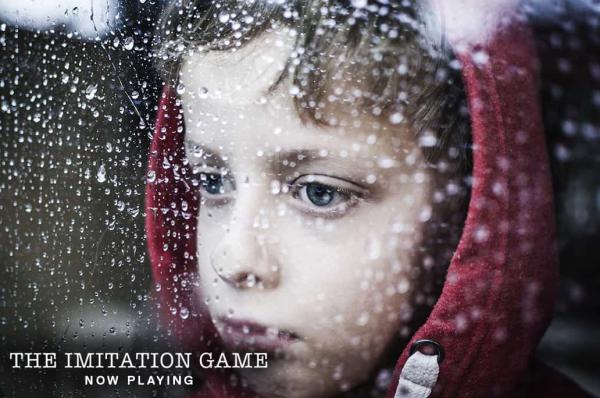
This article is sponsored by The Imitation Game, the heroic story of British genius Alan Turing who was bullied his entire life, overcame his nemeses and saved millions of lives by creating what became the world's first computer. Click here for tickets and showtimes.
One of the single most heartbreaking experiences for a parent is to learn your child is being bullied. All at once you feel anger, righteous indignation and a profound feeling of helplessness. You can't always be there for your child, but what can you do when you learn the worst is happening while your child is away from home?
Stop. Wait
Instead of being consumed by the negative emotions that come with this painful experience, pause and focus on the way you can help your child through their problems. As a parent you need to know how you can help and what you can do to prevent bullying from ever happening again.
Learn the signs of bullying
Some of the most commons signs of bullying include:
-
Unexplained loss of clothing or money
-
Fear of going to school
-
Difficulty sleeping
-
Drastic changes in eating habits
-
Unexplained physical injuries
Look for patterns of behavioral change and not just isolated incidents.
Communicate openly and frequently with your child
It is unlikely your child will tell you about his bully problems if he doesn't usually speak honestly with you. Focus on being a positive support for your children every day and let them know they can speak with you about anything. The promise and feeling of constant, unconditional love is something every child should feel from their parents.
Listen to your child
As you talk with your child, be sure to give her time to formulate her own thoughts. Your impulse will be to give advice and ask a barrage of questions, but you need to allow your child to voice her thoughts on her own to find out what she is really going through.
The Child Development Institute teaches parents that "open and comfortable communication with your kids develops confidence, self-esteem, good relationships with others, cooperation and warm relationships with you."
Reach out for help
If the bullying is taking place at school, there are adults at school who can help your child. Find an adult your child trusts, like a teacher or administrator, and make a plan with them to help your child.
Educate and empower your child
It is important that you and your child share an understanding of what is and isn't bullying. StopBullying.gov defines bullying as "unwanted, aggressive behavior among school-aged children that involves a real or perceived power imbalance. The behavior is repeated, or has the potential to be repeated, over time." This includes cyberbullying, which may require you to educate yourself about the ways your child can be bullied online. Teach what to look out for so he or she knows what to tell you about.
Share with your child the stories of Albert Einstein, Alan Turing, President Barack Obama and others who overcame bullying and lived extraordinary lives. Help your child develop new friendships outside of school to widen their supportive influences.
Teach your child how to respond
When someone speaks up to a bully, the bully is less likely to continue. When victims of bullying refrain from lashing out or crying in front of the bully, the bullying is less likely to continue. If you can teach your child to walk away from bullying and report it to a trusted adult, you are giving him the best possible way out of future bullying problems.
Get help
Depending on the circumstance, you and your child may require professional help. You may require legal protection. Children affected by bullying may need some psychiatric treatment to restore their confidence.
Support and love your child
Above all else, let your child know that you love them. Let them know that no matter what happens you will always love them. They need your support now more than ever.
Children who are perceived as "different" are often the ones who are bullied. But, as Alan Turing reminds us, it's sometimes the ones who no one imagines anything of that do the things no one can imagine.
The Imitation game tells the remarkable story of Alan Turing who, despite being bullied as a child for being different, overcame his nemeses to save countless lives and end a war. Historians estimate Alan Turing shortened World War II by two years and saved more than 14 million lives. Click here for tickets and show times.

